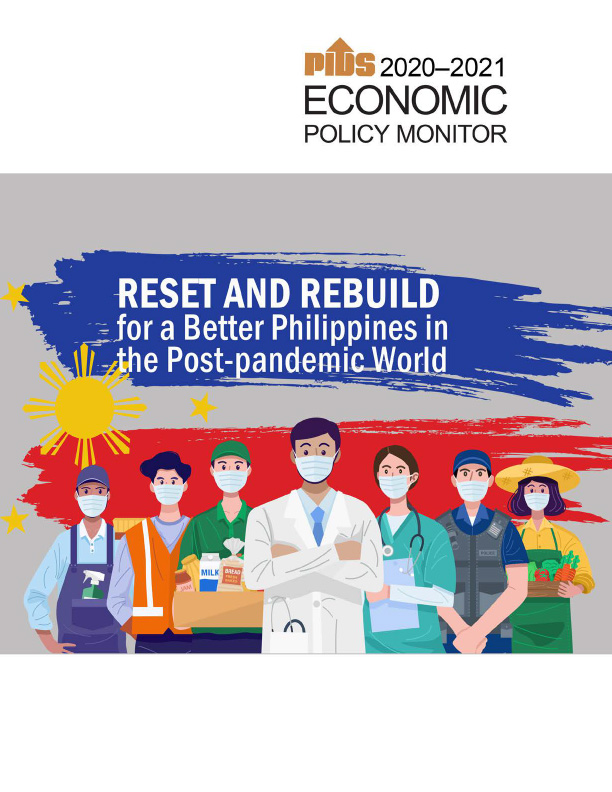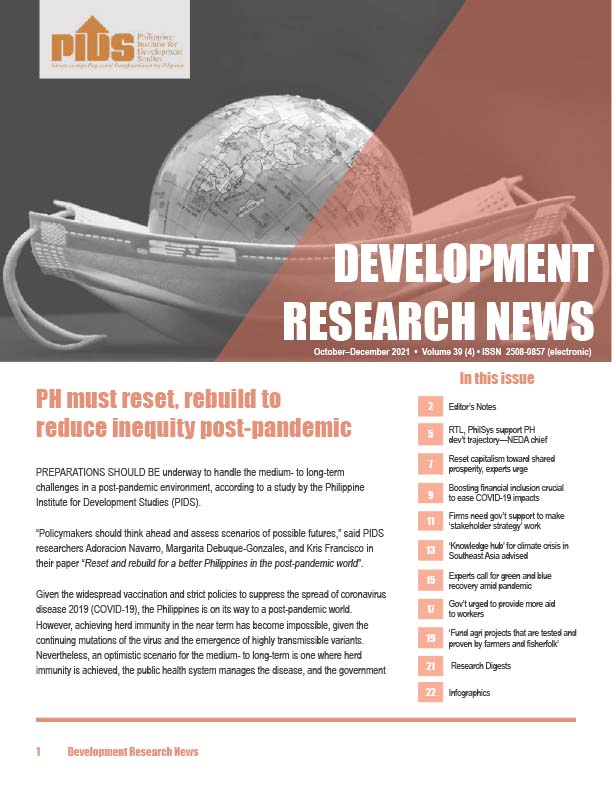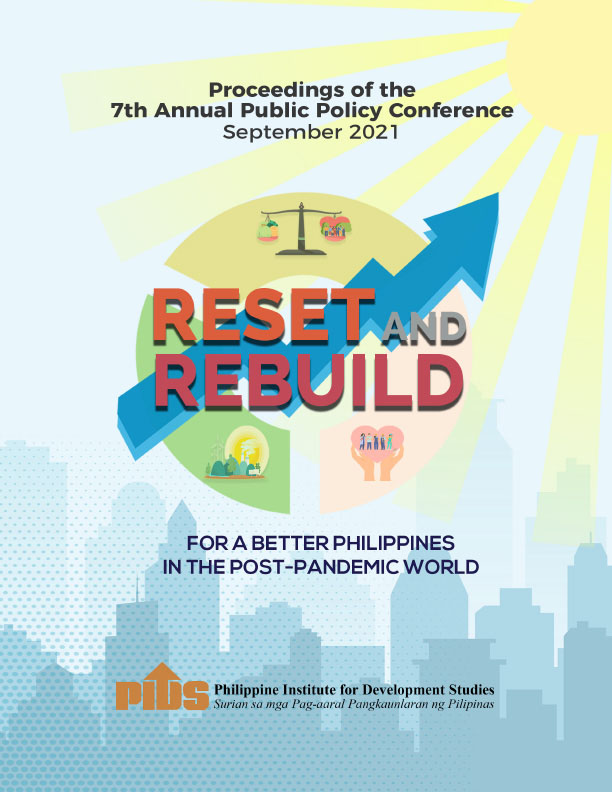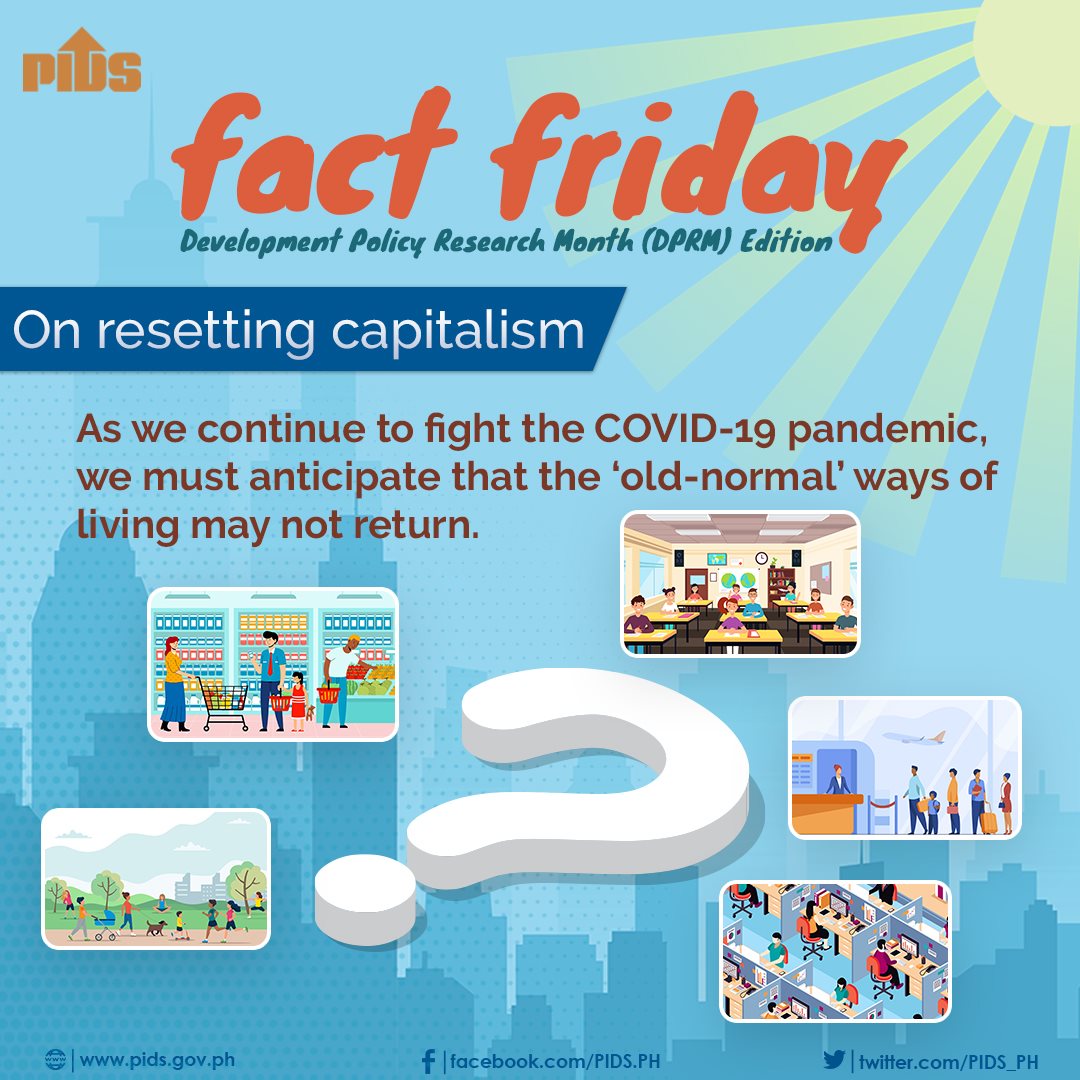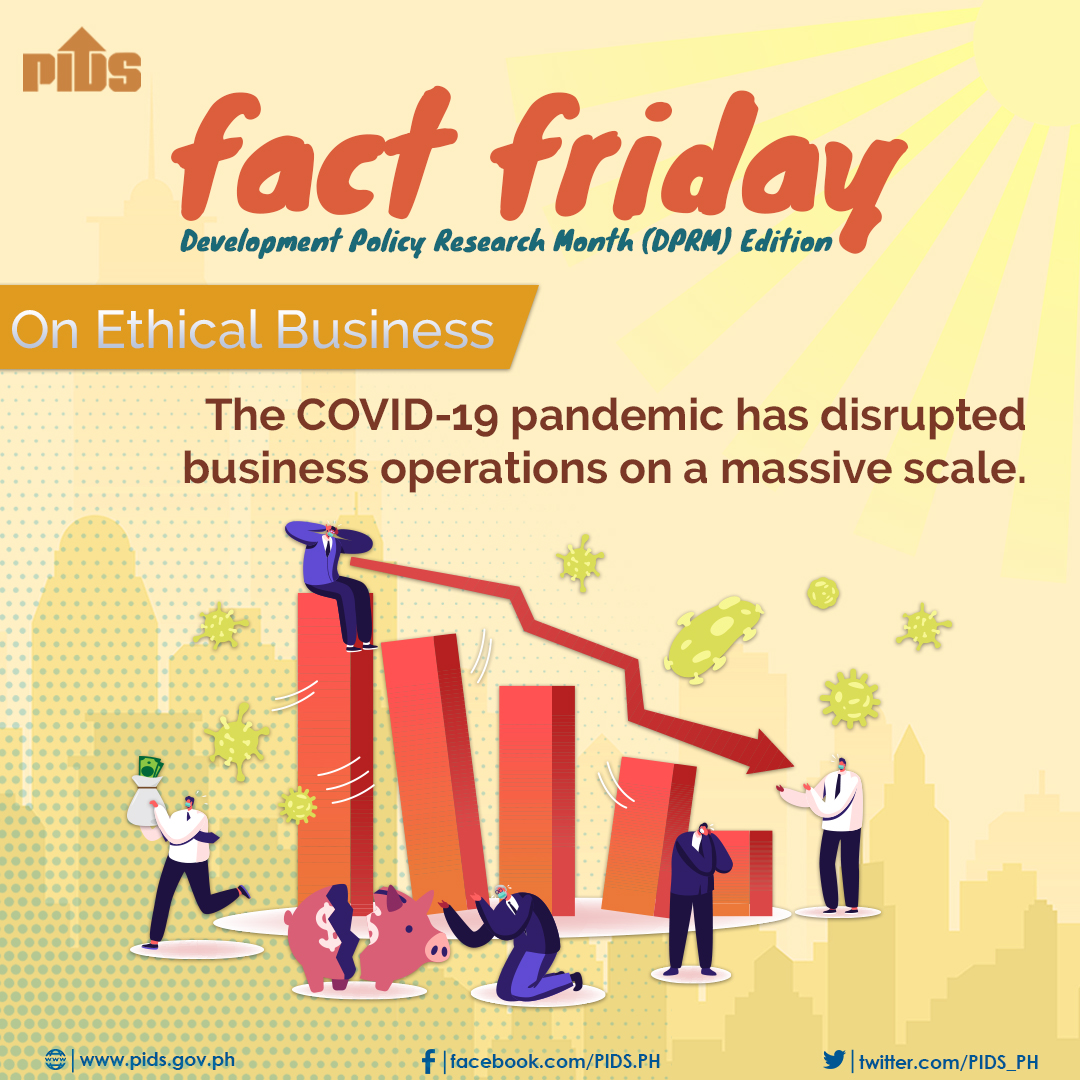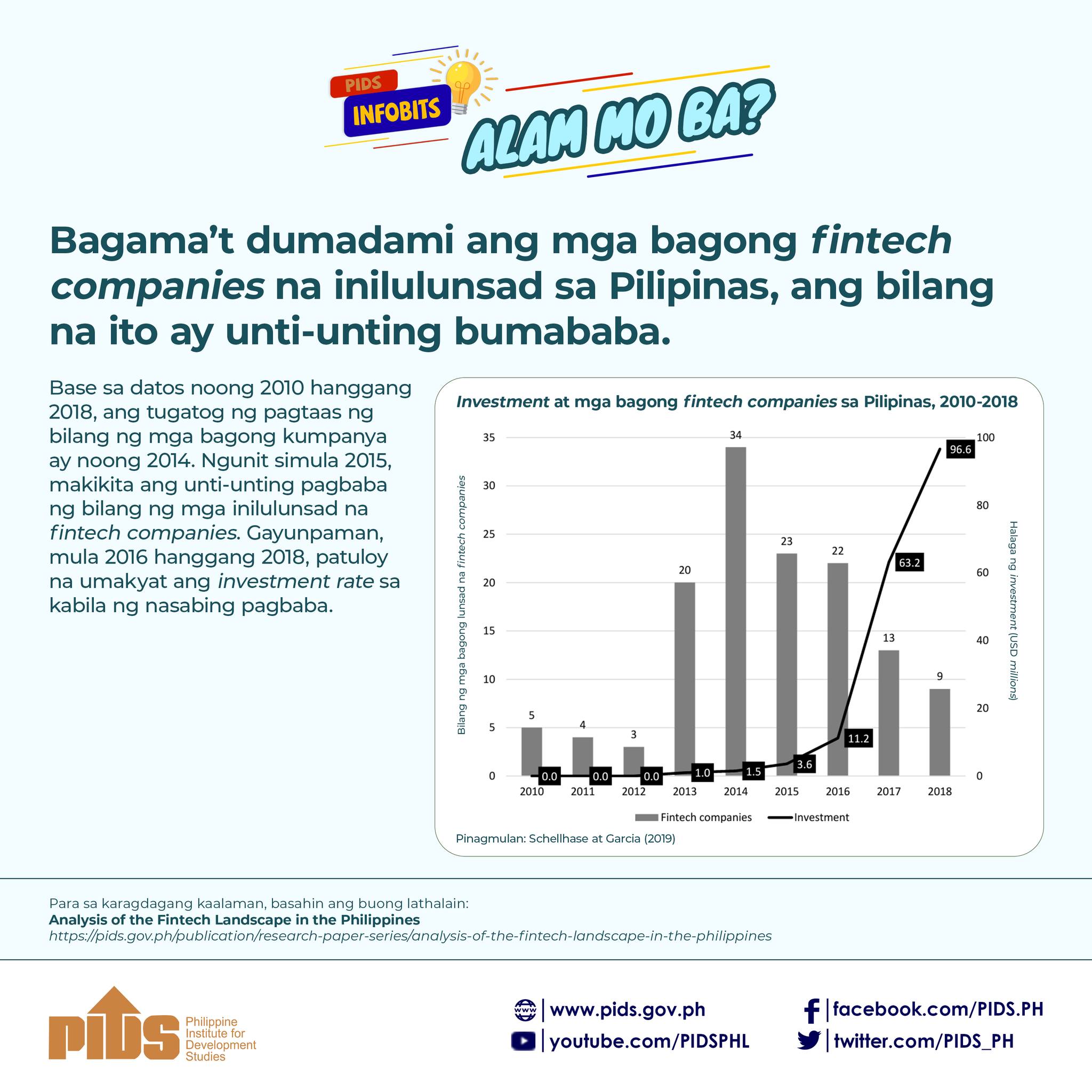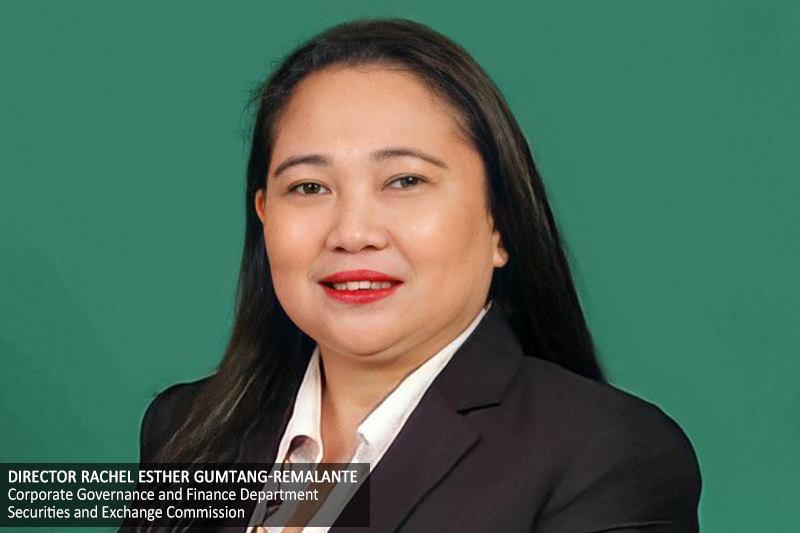
A company should be socially responsible in all its dealings, especially within the community where it operates.
Atty. Rachel Esther Gumtang-Remalante, director of the Securities and Exchange Commission (SEC)’s Corporate Governance (CG) and Finance Department, emphasized this in her presentation during the 19th Development Policy Research Month (DPRM) virtual kick-off forum.
She also stressed that a firm should serve the environment and its stakeholders in a positive and progressive manner.
According to Gumtang-Remalante, SEC issued the memorandum on Sustainability Reporting Guidelines for Publicly Listed Companies (PLCs) in the Philippines to encourage businesses to adopt a globally recognized standard framework in reporting sustainability and nonfinancial issues.
Through this notable effort, the UN Conference on Trade and Development awarded SEC the International Standards of Accounting and Reporting (ISAR) Honours in 2019 for promoting best practices in sustainability and reporting on the SDGs. This year, it received the Global Good Governance Advocacy and Commitment to Corporate Governance Award from the London-based Cambridge International Financial Advisory. The award recognizes individuals and institutions that treat governance and sustainability as a strategic priority.
“[The memorandum] is intended to help PLCs assess and manage nonfinancial performance across economic, environmental, and social aspects of their organization and enable them to measure and monitor their contributions towards achieving universal targets of sustainability, such as the United Nations (UN)’ sustainable development goals (SDGs) as well as the national policies and programs such as the AmBisyon Natin 2040,” she said.
Gumtang-Remalante noted that 91 percent of the PLCs submitted their sustainability report in 2019, a “big improvement” from the submission in 2017, which is less than 22 percent.
She disclosed that many corporate managers still believe that dealing with [environmental, social, and (corporate) governance] issues entails sacrificing some financial returns. But this view, she said, is outdated and no longer holds. “Sustainable business practices and reporting do not only improve a company's brand but have positive financial implications,” she explained.
“It is important to have an inclusive stance in business; otherwise, we might be left behind. Sustainability is everyone’s responsibility. We should not expect other people to do sustainability practices for us. We must also do our role in making our planet last for the next generation. In short, we must be remarkable ancestors who champion sustainability for our descendants,” she concluded.
The DPRM, led by the Philippine Institute for Development Studies, is celebrated every September to promote nationwide awareness of the importance of policy research in crafting evidence-based policies, plans, and programs, pursuant to Malacañang Proclamation No. 247 signed in 2002. This year’s theme is “Reset and Rebuild for a Better Philippines in the Post-Pandemic World”, or in Filipino, “Muling Magsimula at Magtayo Tungo sa Mas Matatag na Pilipinas Pagkatapos ng Pandemya”. ###
You may watch the webinar from this link: https://www.facebook.com/PIDS.PH/videos/854765825174584.
Atty. Rachel Esther Gumtang-Remalante, director of the Securities and Exchange Commission (SEC)’s Corporate Governance (CG) and Finance Department, emphasized this in her presentation during the 19th Development Policy Research Month (DPRM) virtual kick-off forum.
She also stressed that a firm should serve the environment and its stakeholders in a positive and progressive manner.
According to Gumtang-Remalante, SEC issued the memorandum on Sustainability Reporting Guidelines for Publicly Listed Companies (PLCs) in the Philippines to encourage businesses to adopt a globally recognized standard framework in reporting sustainability and nonfinancial issues.
Through this notable effort, the UN Conference on Trade and Development awarded SEC the International Standards of Accounting and Reporting (ISAR) Honours in 2019 for promoting best practices in sustainability and reporting on the SDGs. This year, it received the Global Good Governance Advocacy and Commitment to Corporate Governance Award from the London-based Cambridge International Financial Advisory. The award recognizes individuals and institutions that treat governance and sustainability as a strategic priority.
“[The memorandum] is intended to help PLCs assess and manage nonfinancial performance across economic, environmental, and social aspects of their organization and enable them to measure and monitor their contributions towards achieving universal targets of sustainability, such as the United Nations (UN)’ sustainable development goals (SDGs) as well as the national policies and programs such as the AmBisyon Natin 2040,” she said.
Gumtang-Remalante noted that 91 percent of the PLCs submitted their sustainability report in 2019, a “big improvement” from the submission in 2017, which is less than 22 percent.
She disclosed that many corporate managers still believe that dealing with [environmental, social, and (corporate) governance] issues entails sacrificing some financial returns. But this view, she said, is outdated and no longer holds. “Sustainable business practices and reporting do not only improve a company's brand but have positive financial implications,” she explained.
“It is important to have an inclusive stance in business; otherwise, we might be left behind. Sustainability is everyone’s responsibility. We should not expect other people to do sustainability practices for us. We must also do our role in making our planet last for the next generation. In short, we must be remarkable ancestors who champion sustainability for our descendants,” she concluded.
The DPRM, led by the Philippine Institute for Development Studies, is celebrated every September to promote nationwide awareness of the importance of policy research in crafting evidence-based policies, plans, and programs, pursuant to Malacañang Proclamation No. 247 signed in 2002. This year’s theme is “Reset and Rebuild for a Better Philippines in the Post-Pandemic World”, or in Filipino, “Muling Magsimula at Magtayo Tungo sa Mas Matatag na Pilipinas Pagkatapos ng Pandemya”. ###
You may watch the webinar from this link: https://www.facebook.com/PIDS.PH/videos/854765825174584.

